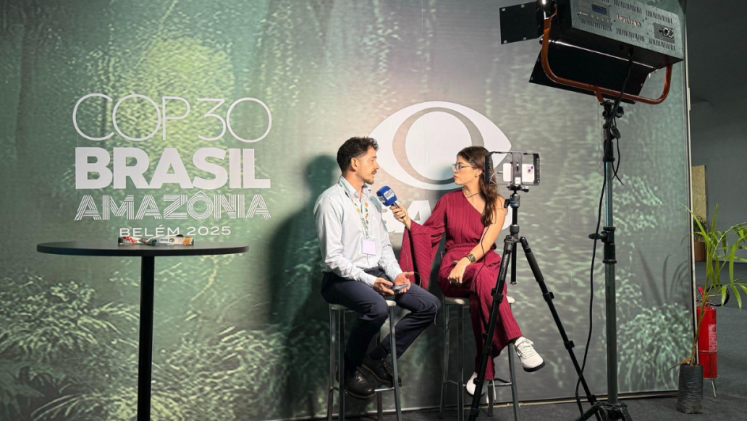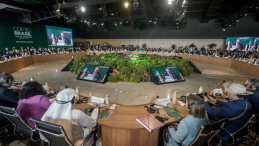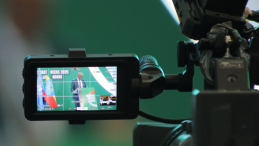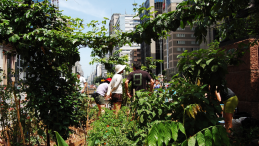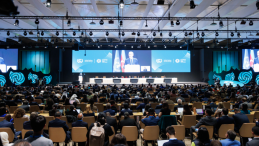COP 30 has wrapped up in Belém, Brazil, delivering some climate wins but also underscoring the need for greater ambition in climate action. Throughout the two-week conference, a delegation from UNU-EHS and UNU-VIE participated actively in events, discussions and engaged with the media. Experts provided insights in interviews, helping to unpack the negotiations and emerging storylines. UNU-EHS also organized a press briefing on sustainable transformation research in urban communities.
First, the Transformative Urban Coalitions (TUC) project, held a press briefing on the increasing importance of cities and other local actors in filling the void where national actions fall short. This was convened together with UN-Habitat, Youth for Unity and Action (YUVA) of India and the Ministry of Cities of Brazil. An article from the briefing was featured in The Hindu.
UNU-EHS Director and UNU-VIE Vice Rector in Europe, Shen Xiaomeng, was featured in an article on China Daily (article in Chinese), covering an event she participated in on carbon neutrality and innovation and technology.
Senior Research Associate Lucas Turmena, engaged with several media outlets from his home country of Brazil, explaining the state of the negotiations as they were ongoing. The outlets Turmena interviewed with included: Brazilian Communications Agency (EBC)- Radio Agência, BandNews, and Dá Tempo Podcast (all interviews in Portuguese).
Senior Researcher, Olasunkanmi Habeeb Okunola also wrote an op-ed in The Conversation about one of COP 30's most crucial outcomes, the Belem Adaptation Indicators. Okunola broke down the indicators, assessed how they impact Africa and shed light on the path to refining them before COP32 in Addis Ababa. "The Belém Adaptation Indicators provide the world with something it has long lacked: a shared, understandable and focused approach to discussing adaptation, centred on what matters most, people’s safety and wellbeing. But they are not the final answer. They are the starting point", he wrote.
Soenke Kreft, Deputy Head of Risk and Adaptation Department and Head of the MCII Division, was featured in articles in The Brussels Times, Mongabay, FairPlanet, PowerTechnology, Germany's Catholic News Agency (KNA) and in the Evangaelischer Zeitung, also of Germany, here and here (articles in German).
Kreft also wrote a COP 30 closing op-ed published in The Brussels Times. Echoing the words of Brazilian President, Luiz Inácio Lula da Silva, who called COP 30 “the moment of truth”, Kreft highlighted several “truths” coming from the final agreement.
Among the COP wins he noted were the pledge of countries to triple adaptation finance by 2035, the decision to establish a just transition mechanism, an agreed set of indicators for the Global Goal on Adaptation and new support on Loss and Damage for vulnerable countries.
Kreft also pointed out the difficult results, such as the likelihood of surpassing the 1.5°C warming limit, the weakening of language on fossil fuel phase-outs, how newly reported national climate plans were not sufficient and how anti-science sentiment is slowing climate progress.
“The final message from the Amazon echoes President Lula’s warning delivered during his opening: we must guard against new forms of climate denialism, a war on science, and complacency in the face of the climate crisis - at all levels using all levers,” Kreft wrote.

